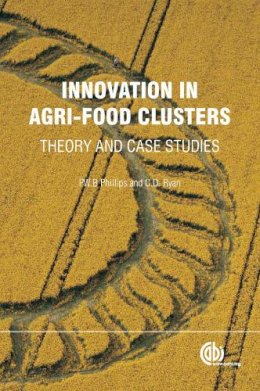
Stock image for illustration purposes only - book cover, edition or condition may vary.
Innovation In Agrifood Clusters
P.W.B. Phillips
€ 103.03
FREE Delivery in Ireland
Description for Innovation In Agrifood Clusters
Theory and Case Studies. 240 pages, 5 b&w illustrations. Innovation has moved through a range of revolutionary epochs, but there is no clear picture of how, or even if, innovation can be managed. This book explores the models, methods and metrics of innovation analysis in the context of a single centre: the Global Oilseeds Complex centred in Saskatoon, Canada. Cateogry: (G) General (US: Trade). BIC Classification: TVD. Dimension: 237 x 162 x 18. Weight: 612.
Innovation has moved through a range of revolutionary epochs, but there is no clear picture of how, or even if, innovation can be managed. This book explores the models, methods and metrics of innovation analysis in the context of a single centre: the Global Oilseeds Complex centred in Saskatoon, Canada. It is a single, coherent volume that outlines the theory and practices related to innovation, offering a critical assessment of the strengths and weaknesses of the different approaches, backed up with empirical evidence.
Innovation has moved through a range of revolutionary epochs, but there is no clear picture of how, or even if, innovation can be managed. This book explores the models, methods and metrics of innovation analysis in the context of a single centre: the Global Oilseeds Complex centred in Saskatoon, Canada. It is a single, coherent volume that outlines the theory and practices related to innovation, offering a critical assessment of the strengths and weaknesses of the different approaches, backed up with empirical evidence.
Product Details
Number of pages
240
Condition
New
Number of Pages
240
Format
Hardback
Publisher
CABI Publishing
Place of Publication
Wallingford, United Kingdom
ISBN
9781780640419
SKU
V9781780640419
Shipping Time
Usually ships in 7 to 11 working days
Ref
99-1
About P.W.B. Phillips
- Dr. Phillips is Distinguished Professor in the Johnson-Shoyama Graduate School of Public Policy at the University of Saskatchewan. He earned his MScEcon and Ph.D. at the LSE and practiced for 13 years as a professional economist and advisor in industry and government. At USask he has held the Van Vliet Research Chair, created and held an NSERC-SSHRC Chair in ... Read more
Reviews for Innovation In Agrifood Clusters
